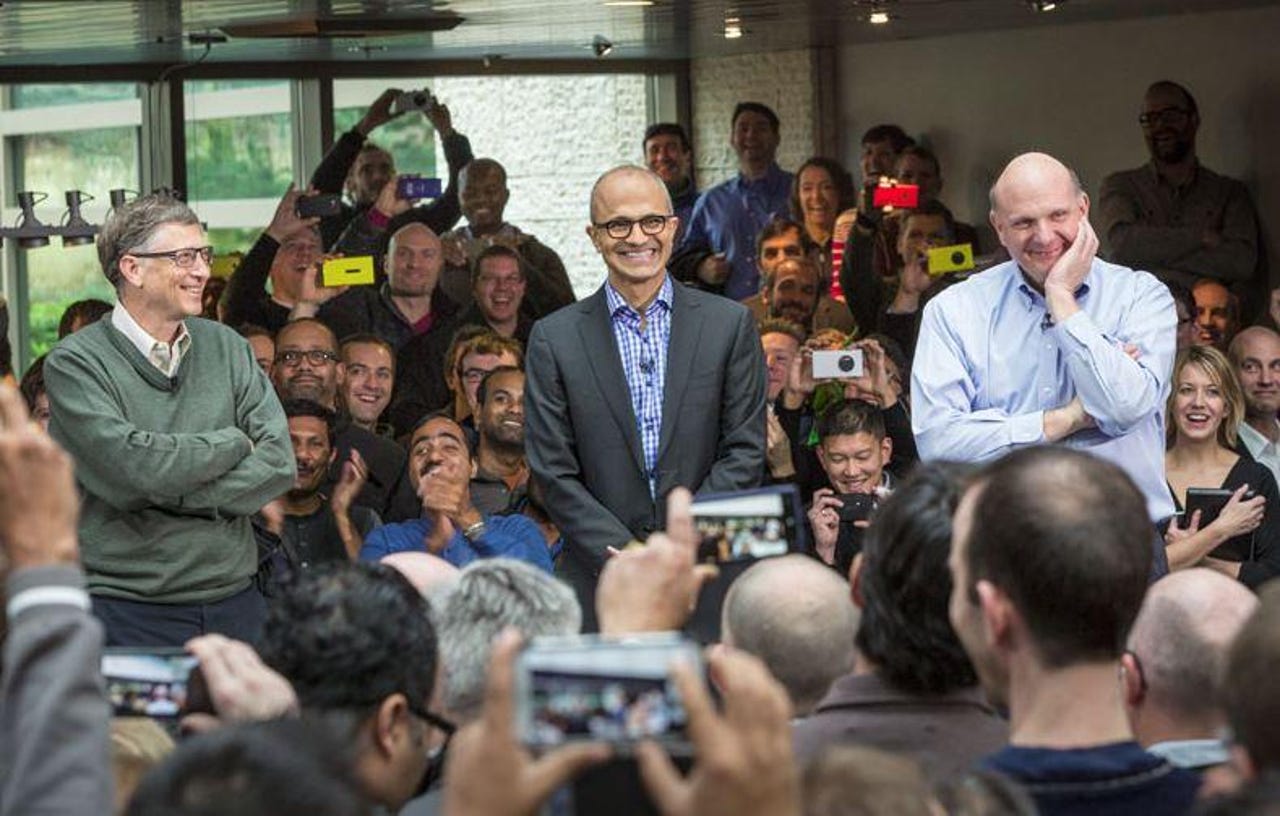Nadella's first five years as Microsoft's CEO: Pragmatism is the watchword


Featured
Five years ago today, February 4, 2014, Satya Nadella was crowned the third CEO of Microsoft. At the time, many of us company watchers thought Microsoft's strategy of picking an insider instead of an outsider would mean more of the same. But there's been relatively little of the same-old since Nadella took over.
I'm not going to recap the cultural changes Nadella has made. There are countless articles and blog posts, along with his own Hit Refresh book, which all cover Nadella's background and his "empowering people to achieve more" mission. The cultural changes he's implemented seem to have resonated with many (most?) Microsoft employees, and morale at Microsoft is up.
I'm more intrigued by Nadella the pragmatist than Nadella the cultural steward. Sure, he is quick to recite Rumi's poetry, but he's equally quick to cut losses early on businesses he and his leadership team deem unlikely to succeed. Maybe it was a different era, but former CEOs Bill Gates and Steve Ballmer seemed willing to give new products and projects a lot of time to try to prove themselves. Nadella, right from the start, was all about focusing on Microsoft's strengths -- which weren't devices and services, but instead productivity and platforms.
Nadella has overseen several reorgs and subsequent rounds of layoffs in the past five years. Just months after becoming CEO, Nadella announced plans to cut 18,000 jobs over the course of a year. In 2017, Nadella helped craft another major reorg, cutting several thousand jobs, mainly in sales. Last year, Microsoft split the Windows division in two.
Under Nadella, Microsoft shed itself of the Nokia phone business (and people) a little over a year after that deal closed. Nadella and team made the decision to cancel the Surface Mini after manufacturing thousands and inviting press to its impending launch. Under Nadella, Microsoft ceased work on the Microsoft Band, Windows Phone and the Groove Music service.
His tenure isn't only about cuts, however. Under Nadella, Microsoft has made some initially-surprising but later seemingly smart acquisitions in the past five years, including LinkedIn, Mojang/Minecraft, GitHub, Xamarin.
Nadella and his management team have managed to get Wall Street to focus on Microsoft's growing cloud business (by inventing a new "commercial cloud" metric) instead of its still hefty but slowing Windows business. Nadella seldom talks about Windows in public forums. He prefers to talk about Microsoft 365 (which includes Windows, Office 365 and Enterprise Mobility and Security, sold as a subscription bundle) and the intelligent cloud/intelligent edge.
Nadella's first five years were about convincing people -- inside and outside the company -- to stop thinking of Microsoft as The Evil Empire. Open source officially became a friend, not foe. Microsoft forged a lot of new software partnerships and even started calling some of its bigger customers "partners."
Nadella's next five years (assuming, as I am, that he sticks around to run Microsoft) will bring a bunch of new challenges. Microsoft's kinder and gentler positioning work is largely done. Now it's time to see if the company really can wean itself off depending on Windows and keep growing its cloud/subscription businesses.
With 420,000 organizational customers, Microsoft Teams is going strong, but what's going to be Microsoft's next high-growth app/service? Will Microsoft's pitch that it's more trustworthy than Google and less likely to compete with its customers like Amazon be enough to keep users in the fold and win over new ones? Microsoft's one, dedicated consumer business these days is gaming, and Nadella seems to back the idea it fits in Microsoft's otherwise almost entirely business-centric portfolio. But does it?
I'm expecting some more pragmatic decisions from Nadella in the coming years -- including some that would have been unthinkable decisions for Microsoft not so long ago. Can Nadella's Microsoft continue to find ways to do show it's up to more good than evil while still competing?